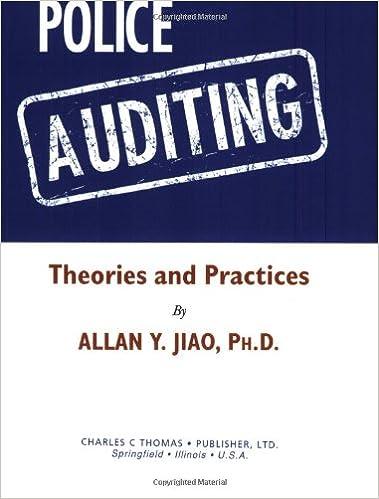Question
1. All of the following are typically costs that fail the future benefits test of long- lived operating assets except: a. costs related to research
1. All of the following are typically costs that fail the future benefits test of long- lived operating assets except:
a. costs related to research and development
b. costs related to marketing
c. costs related to brand-building activities
d. costs of equipment used in production
2. When deriving the equity value of a firm, an analyst forecasts the real (inflation adjusted) dividends expected to be paid in the future. Which discount rate should be used here?
a. The nominal rate of return
b. The real rate of return
c. The risk -free rate of return
d. The risk-adjusted rate of return
3. Suppose that ABC Corp incurs a $500,000 expenditure that increases the service potential of an asset beyond that originally anticipated.
Where would you observe the impact of the expenditure in the financial statements?
a. It would be part of the repair and maintenance expenses in the Income Statement.
b. It would be part of the changes in working capital items in the CFFO section of the Statement of Cash Flows.
c. It would be part of the Capital Expenditures section of the CFFI section of the Statement of Cash Flows.
d. It would be part of the decrease of Financial Assets section of the CFFI section of the Statement of Cash Flows since Cash is a financial asset used for the expenditure.
4. Which of the following valuation models typically displays the lowest explanatory power (as measured by R-squared) in terms of explaining the variation in stock price or returns? Typically this model has an R-squared in the 3% to 5% range.
a. The discounted dividends model
b. The discounted free cash flows to equity model
c. The discounted free cash flows to invested capital model
d. The discounted residual income model
5. The conceptual framework for free cash flows separates all assets and liabilities into the following categories:
a. Current and non-current
b. Monetary and non-monetary
c. Operating and non-operating
d. Operating and financial
6. If an analyst wants to value a invested capital of a firm, the analyst should discount the projected after-tax free cash flows to invested capital with the
a. after-tax cost of debt capital
b. cost of equity capital
c. before-tax weighted average cost of capital d. risk-free rate
e. after-tax weighted average cost of capital
7. A major disadvantage of the free cash flow valuation method is
a. The terminal value tends to dominate the total value in many cases. b. The projection of free cash flows depends on earnings estimates.
c. The free cash flow method is not rigorous.
d. The free cash flow method is not used widely in practice.
8. Residual income is:
a. adjusted net income the firm reports.
b. the difference between the net income the analyst expects the firm to
generate and the required earnings of the firm.
c. the difference between the net income the analyst expects the firm to
generate and the reported earnings of the firm.
d. the book value of common equity capital at the beginning of the period
multiplied by the required rate of return on common equity capital.
9. The results for a discounted residual income valuation application are presented below. Both dollar and relative contributions to the overall equity value are shown.

a. An agricultural equipment manufacturer
b. An early development gene therapy pharmaceutical company
c. A public accounting and consulting firm
d. A software and social media development company
Book Value of Equity Total Present Value of YBY Residual Income Residual Income Perpetuity 196,560 80.5% 19,691 27,849 11.4% 8.1% Market Value of Equity 24,100 100.0%
Step by Step Solution
There are 3 Steps involved in it
Step: 1

Get Instant Access to Expert-Tailored Solutions
See step-by-step solutions with expert insights and AI powered tools for academic success
Step: 2

Step: 3

Ace Your Homework with AI
Get the answers you need in no time with our AI-driven, step-by-step assistance
Get Started


